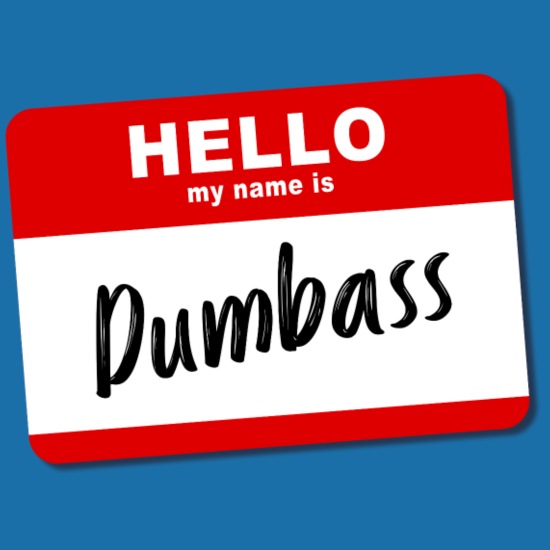I honestly don’t believe I will have any legal trouble because I don’t do anything like cp or worse, I just pirate media I like, not even porn. But across users of communities, or on public trackers, is IP exposure something to be concerned about?
It’s good opsec to have a VPN when torrenting but thats largely due to the risk of being identified commiting a crime.(Or at the very least, having your ISP send you an angry letter about copyright infringement)
If thats not part of your threat model, then you dont need to worry.
Or you live in a country that purelly doesn’t care about it to the point you can have a seedbox running 24/7 throught your network.
Bonus points if it also shows your “location” to be 100km away. To the point that it sometimes shows you to be in another country next to your.
Another point when it changes your public ip address dailly.
dont give 'em anything to fuck with you down the road. seems a no brainer. “Mrs. TheHooligan95? ahh yes we are here to confiscate your home because your son TheHooligan95 illegally downloaded Ninja Kods 3 back in 2001. No, you cant talk to your son. He was already executed for corporate treason this reason.”
This sounds accurate
People have and will be executed for dumber reasons.
White rich girl picked you out of the lineup. Don’t worry, DNA science won’t prove you’re innocent for another decade after justice has been carried out.
The general philosophy: they can’t prosecute the entire populous.
If everyone is pirating, they focus on the ones who pirate the worst shit or the ones who pirate the most shit for profit.
In a sea of pirates, you don’t get tagged.
If people stop pirating, the bar for too extreme or too much lowers.
They do pirate the most extreme and the most prolific pirates, however.
A story as old as time.
Removed by mod
Pretty much.
Removed by mod
What do you mean by “the government doesn’t care”? Do you mean that they are not enforcing copyright protection laws to your knowledge? Or that copyright protection laws don’t actually exist in your country at all? If the laws exist but are not being enforced, there is always a possibility that they will be enforced in the future or that a change in government will lead to a change in approach. Your government could also potentially pass new laws in the future that make it easier for foreign entities to go after yourself and other pirates through your local courts.
You need to work out exactly what the law in your country says, what the government’s attitude towards piracy is and whether there is a legal precedent in your country for the prosecution of pirates. For example, in Australia we have copyright laws and a government that is at least somewhat committed to upholding them, but we also had a significant court case a little over a decade ago in which it was ruled that the ISP being sued was not responsible for the piracy its users were allegedly engaging in. This essentially set a legal precedent within Australia that allows ISPs to turn a blind eye to piracy and makes it more difficult for foreign entities to prosecute Australian pirates. This is why most court-ordered anti-piracy action within Australia is limited to DNS blocks on websites. As a result, many Australians feel safe torrenting without a VPN because they believe it is very unlikely their ISP could be compelled in court to hand over their information or that there is even the will to attempt this following that high profile defeat in 2012.
In my country it is illegal to share, but not illegal to download, since when consuming you’re not meant as a websurfer to know the source of that something. Should that law change, it cannot retroactively affect something that happened in the past. So I don’t plan ever to share anything publicly, but only the very few things I’m very passionate about to the point I want to share them with communities of friends which you can access through invites only. Sharing a back up copy with your friends is not illegal either even if the EULA or whatever says it is, unlike for example in the UK.
I was specifically asking about cybersecurity in general.
In my country it is illegal to share
But torrenting means you’re also sharing.
Yes but you didn’t create the torrent first
But who created it is irrelevant, the seeding is the legal issue.
I think that’s not necessarily true. There’s certainly some good reasons to have a distinction between the original uploader and all the rest of the additional seeders. It’s going to come down to local law.
An analogy is if you buy some illicit substance and split it up with a few friends who pay you their share. Whether or not your local authorities considers you an illegal drug dealer could be highly dependent on scale, profitability, frequency, clientele, etc. Those details could be the difference between a slap on the wrist and some hard time.
I can’t speak for every obscure jurisdiction that might exist, but I’ve never heard of that being a factor.
I don’t know the laws that well, but there is a distinction in Canadian law between uploading and downloading. I’m not entirely sure how applicable to torrenting that is, but I think there’s a reasonable argument that if you are the original uploader, you must have uploaded the content in it’s entirety, whereas that’s not necessarily true for anyone else downloading the torrent, and certainly not provably so.
In my country it is illegal to share, but not illegal to download
By torrenting, you are sharing by default as it’s P2P. Even if you choose not to seed after downloading, you’re still sharing while you are downloading as other people who download after you are downloading chunks of the data from your partially downloaded data too.
So technically you are still committing a crime here.
Should that law change, it cannot retroactively affect something that happened in the past
Not necessarily. Very tyrannical governments don’t care and will tread on your rights even going backwards before the law was enacted if they so desire to do so.
Most laws don’t apply retroactively, but some can and do.
In some countries private law firms chase down infringers on behalf of copyright holders. They then attempt shakedowns with the threat of legal action if you don’t pay. They have a financial interest to catch people, and moral compasses vary.
Also, mistakes can happen (you, your family, guests using your wifi, in the courts, in the ISPs, in the law firms, in the tech they are using to identify people). Shit happens.
And if (when) it happens, then you would still have to deal with it, costing you time and money.
Understand the risks and make choices to minimize them if you can.
Use I2P guys. The more the better. It is Foss and is 100 times better then any VPN. It is only a bit slower sometimes.
Just use I2P? Can you access public trackers via I2P or do you have to use the crap internal ones?
Recent qbitorrent update supports cross sharing between public/i2p users.
But people have to enable the option, most public trackers aren’t aware off and most private trackers are not into sharing their well builded closed piracy club money making scheme
I accidentally turned off my VPN for like a few minutes while torrenting and Comcast immediately wagged their finger at me. Cover your ass.
I just pirate media I like
In other words, your computer is downloading stuff from other computers, that’s potentially receiving stolen property, but a potential argument might be that you didn’t know that it was stolen. It’s not a good argument, but it’s an argument. So you’re an individual who potentially broke the law. Depending on how much money you have, you might get a knock on your door.
But then, you also distribute that potentially stolen property to other computers, because that’s how BitTorrent works, and now you’re part of a distribution network dealing with stolen property. The chances that once you’ve discovered you come away with just a slap on the wrist are slim to none.
How do they find you?
Through your IP address.
How?
By figuring out who owns that address, who loaned it to you to get online at that specific time. One packet at a time the research will bring them closer to knocking on your door.
So, is it a big deal that your public IP address is linked to torrenting? Yes it is.
Is this the whole story? Not by a long shot, but it’s not my job to teach you how to break the law.
Meh. I don’t know about OP but where I live ISPs are forced to relay the legal notice, but nothing more happens. There is no prosecution and nobody will knock on my door.
I have been torrenting on and off since the protocol exists and never once hid my IP. My ISP relays me the threats from the industry, I ignore them, and continue what I was doing before. Same for everyone in my country. Those that end up paying for a VPN and hiding their IP are just intimidated onto doing so, because of the threats. But again, aside from getting that threatening email, nobody will knock on your door for torrenting here.
In Australia an ISP went to extreme lengths to have a ruling, spending four years in litigation:
https://torrentfreak.com/iinet-isp-not-liable-for-bittorrent-piracy-high-court-rules-120420/
That’s excellent for their clients. I’m guessing it set a precedent and the industry stopped trying anything else.
I didn’t follow the most recent developments here in Canada but AFAIK, a decade ago the industry tried to sue individuals that were “pirating”, and lost because they couldn’t proof that an IP could be associated with a single person, or something like that. Then the industry pretty much stopped trying to sue individuals from that point. They still send the threatening letters, but they don’t do anything else because past experiences with our courts didn’t go well for them.
Of course, there is a very very slim chance that the industry will try to sue a few individuals to scare others and create a new precedent, but it’s going to be a civil suit because it’s not even criminal here.
it did, basically in Australia content owners are free to demand restitution for the actual loss suffered (ie the cost of a dvd) and if you ignore them, they are free to take you to small claims court over it, wearing the cost of doing so. so it essentially ended copy claims
Torrent on public access wifi from McDonald’s, the local library, your neighbor’s unsecured router, etc…
A lot of businesses and libraries block the ports needed to torrent or do much of anything beyond basic web access. Some places, especially libraries, will also have web filters in place to further complicate access to torrent sources. Even if by chance you could find a place that has those ports open and can get past the filters, as others have said, it is still possible for them to have enough information to identify you.
“I’m going to offload my need to be technically literate in order to pirate to my local library and let them deal with the problem because I’m an entitled asshole who shits where I eat and doesn’t realize I’ll get in trouble anyway.”
If you think that will protect you, there is a lot for you to learn…
Pray tell how they would find the user from an IP address that will resolve to a location other than where they live that they connect to anonymously?
-
I think McDonald’s makes you make an account these days to use their WiFi, I could be wrong, however. This means you now have identifying information about you and your connection on McDonald’s servers, which can be subpoenaed in an investigation.
-
Local libraries generally require you to have a Libary Card, which is associated with your library login. Because lots of people need library computers, they need to be able to get people to leave the computer without having to physically remove them. One of those ways is with tracking who is connecting by associating their account with a library card and disconnecting them automatically after a period of time. Your library usually wants you to live (or at least exist in) the neighborhood, and will have your name and address on file. This can also be subpoenaed in an investigation.
-
MAC address spoofing is trivial, sure, but a lot of folks don’t know to do it, and in any one of these cases, if they used the MAC address that was burned in when the product was sold, they have a real opportunity to nail down which specific device connected. They would subpoena the manufacturer for records of where that device was sold, they would subpoena the records of the local retail outlet, and have information on the sale of the device used to connect.
-
In your neighbors case, you could just be condemning them to civil or criminal liabilities, depending on the laws in your jurisdiction. That’s a pretty “not nice” thing to do.
I’m sure there’s plenty of others. Those are just off the top of my head. Most of the reasons involve “companies keeping information about who uses their services and how,” often called “logs.”
There’s a lot more information than just an IP being sent in a TCP packet.
To be clear, I’m not the person you were responding to originally and I think OP is fine if piracy is legal where they live, you just asked how it would be possible and so I tried to think of ways related to the suggestions you made. Cheers.
What if my neighbor is an asshole who deserves it tho? :p
lol ya got me
-










